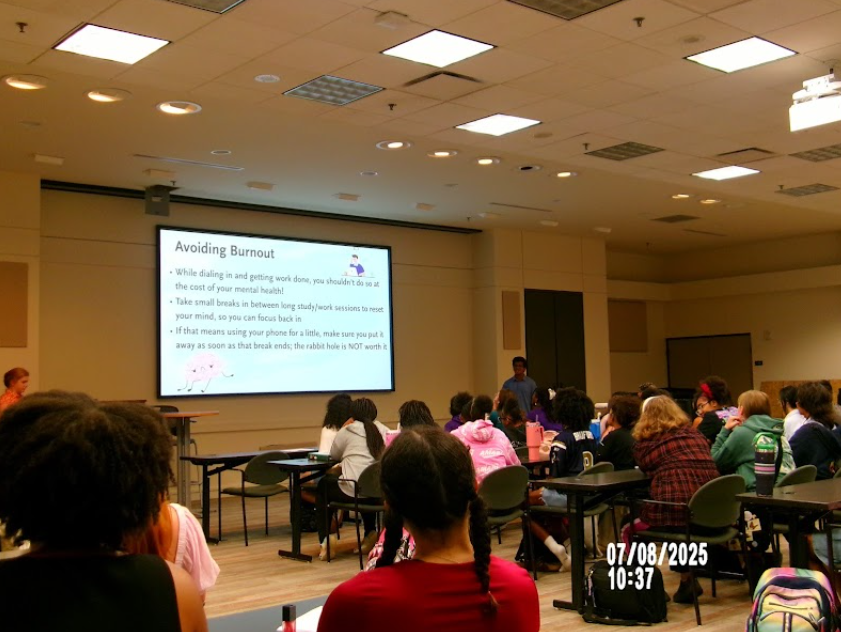Homework can help emphasize what students have learned in the class, but at what cost? Every day, middle and high school age students go home after school and their extracurriculars to start hours of extra learning outside of the classroom. Some teachers claim the purpose of homework is to “reinforce” what is actually learned in the classroom for better understanding and retention. But, if students are going home every night for hours of homework, when is there time to do other things, like sleep or hang out with friends or take care of their mental health?
Overburdened students are met with a plethora of difficulties like stress, anxiety, and even health problems. One study from Stanford University explained that “56 percent of … students considered homework a primary source of stress.” Stress, headaches, exhaustion, struggles with weight, and sleep deprivation are often the result, creating more difficulties for the already-stressed student.
Sleep-deprived students are met with numerous health problems in real life and later in life. The National Heart, Lung, and Blood Institute explained “Sleep deficiency is linked to many chronic health problems, including heart disease, kidney disease, high blood pressure, diabetes, stroke, obesity, and depression.” It can also cause a high rate of injury for teens and adults due to a higher risk of getting in accidents and falling. Along with the numerous problems lack of sleep can cause, people with sleep deficiency have more mental health problems and a loss of productivity.
Additionally, wealthier students tend to be better equipped to complete homework at home. According to the University of San Diego, when provided with more resources accessible to higher income students, like the internet, computers, quiet places to do homework, and more educated parents who are willing to help, students complete homework more successfully. In lower-income families, students might have additional responsibilities like working after school or taking care of younger siblings while their parents are working. These responsibilities, in addition to reduced help at home, can contribute to challenges for students for completing their homework on time, resulting in negative repercussions caused by completing the homework late.
When schools give no, or minimal, homework, it allows students to focus more of their free time on hobbies or areas that they enjoy, instead of forcing them to complete work that is often tedious and of low educational value or too difficult to complete alone. Reduced hours spent on homework likely can decrease burnout and help students enjoy the learning aspect of school, not just the work part. Spending quality time doing things they enjoy has been shown to decrease stress according to Piedmont Healthcare.There is more time to spend time with family and friends, developing new hobbies, and getting adequate rest with less homework.
The Washington Post described a school called Orchard School in South Burlington, Vermont, which does not give any homework. This policy has resulted in kids being more interested in learning, especially showing an increase in the interest of reading. The Orchard School is in the top 10% of all public schools in Vermont, according to US News and World Report, with Vermont being ranked as the 11th best K-12 public schools in the country. There are many other schools around the world that demonstrate better learning environments without the stressor of homework, indicating the ineffectiveness of this so-called “learning device.”
Homework can be a successful tool in helping students learn better, but too much homework can create numerous consequences that do not create a good environment for healthy students. Teachers and schools need to rethink the value of homework because its negatives can often outweigh its positives.
























